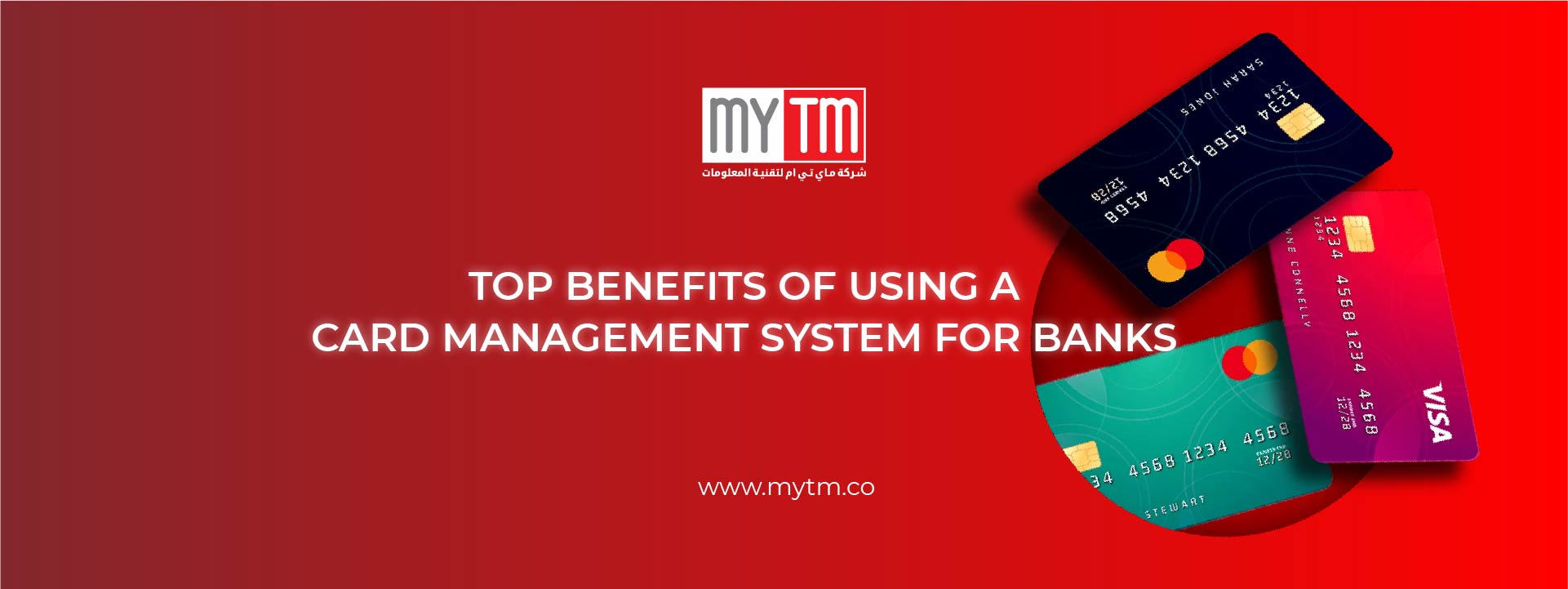Why Card Management Systems Matter for Saudi Banks.

Why Card Management Systems Matter for Saudi Banks.
Saudi Arabia’s banking sector is rapidly embracing digital transformation. Under Vision 2030, cashless transactions have surged; by 2023 about 79% of consumer payments by volume were digital. The prepaid card and wallet market, driven by fintech and e-commerce, is projected to reach roughly $9.65 billion by 2025. In this fast-paced, cashless economy, banks and fintechs need robust tools to issue and manage payment cards.
A Card Management System (CMS) gives banks centralized control over physical and virtual cards, helping them meet growing customer demand while ensuring security and compliance in Saudi Arabia’s evolving payments landscape.
Benefits of Card Management System for Banks
A modern CMS delivers multiple advantages for banks, including:
-
Operational Efficiency: Automates manual tasks (like card issuance and reporting) and reduces processing time.
-
Improved Security: Monitors transactions and enforces fraud controls, minimizing unauthorized use.
-
Enhanced Customer Experience: Enables fast card services (instant issuance, 24/7 access to card controls) that boost customer satisfaction.
-
Revenue Growth: Supports new card products and loyalty programs to increase usage and retention.
Each benefit contributes directly to a bank’s bottom line. For example, automating card workflows frees staff to focus on strategy, and strong fraud controls protect assets. In Saudi Arabia’s regulatory climate, these gains are especially important (see next sections).
Enhanced Security and Fraud Prevention
Security is a top priority. A CMS encrypts card data and uses tokenization so that even if data is intercepted, it cannot be misused. It applies multi-factor authentication and real-time fraud monitoring flagging suspicious transactions instantly. Banks can set rules (e.g. spending limits, geo-blocking) and freeze or disable cards on the fly if fraud is detected.
In KSA, the Saudi Central Bank (SAMA) has instituted strict counter-fraud and cybersecurity frameworks. A CMS helps banks comply by generating audit logs and enforcing those controls automatically. For more on securing payment systems, see our article on digital payment security.
Improved Operational Efficiency and Cost Savings
A CMS dramatically cuts manual overhead. It automates end-to-end card issuance – from customer onboarding to personalization – often reducing a multi-day process to minutes. Banks save on printing, mailing, and labor costs. All card transactions, fees, and settlements flow through the CMS, which can interface directly with back-office systems.
For instance, MYTM’s CMS integrates with accounting software so finance teams reconcile statements automatically. Automated reporting (e.g. spending analytics) replaces error-prone spreadsheets. Overall, this efficiency lets banks redirect resources from routine tasks to value-added services.
Better Customer Experience and Innovation
Modern customers expect digital card solutions. A CMS enables banks to innovate with card products easily. For example, it can issue virtual credit cards (one-time or limited-use numbers) for secure online shopping and link cards to mobile wallets for tap-to-pay. Physical debit, credit or prepaid cards can be generated on demand for any account. This flexibility speeds up fintech card issuance allowing banks and neobanks to launch new card programs without building backend systems from scratch.
Customers benefit, too: through the CMS, they get tools to set spending limits, receive instant transaction alerts, or lock misplaced cards on their phones. Together, these features provide cutting-edge digital card solutions that attract tech-savvy users and open cross-selling opportunities.
Compliance and Risk Management
Banks must meet rigorous standards like PCI-DSS and SAMA’s regulations. A CMS helps by embedding compliance into operations. It enforces encryption and secure storage of cardholder data, as mandated by PCI rules. It also supports AML and KYC checks before card issuance, reducing money-laundering risk. In Saudi Arabia, SAMA’s new Payment Services regulations and Cybersecurity Framework demand robust controls.
The CMS provides comprehensive logs and reporting, making audits and regulatory reporting simpler. By centralizing controls, banks can adapt quickly to new rules – for example, adjusting authentication settings or updating fraud models – thereby minimizing regulatory risk.
Why MYTM’s Card Management System
MYTM’s CMS is built for exactly these needs. It offers end-to-end card issuance and management out of the box. For example, it can create physical or digital debit, credit, or prepaid cards for any account, and even generate unique 16-digit virtual credit cards for online use. Administrators gain real-time control: they can set spending limits, freeze or reissue cards instantly if a card is lost or compromised. All card data is protected by hardware security module (HSM) encryption, ensuring transactions comply with international standards.
MYTM’s platform also delivers detailed financial tracking and analytics and integrates seamlessly with accounting and core banking systems, giving banks a unified view of card activity. By choosing MYTM, Saudi banks and fintechs tap into proven technology tailored for the Kingdom’s market. Schedule a demo to see how MYTM’s Card Management System accelerates digital payment innovation while keeping fraud in check and ensuring regulatory compliance.